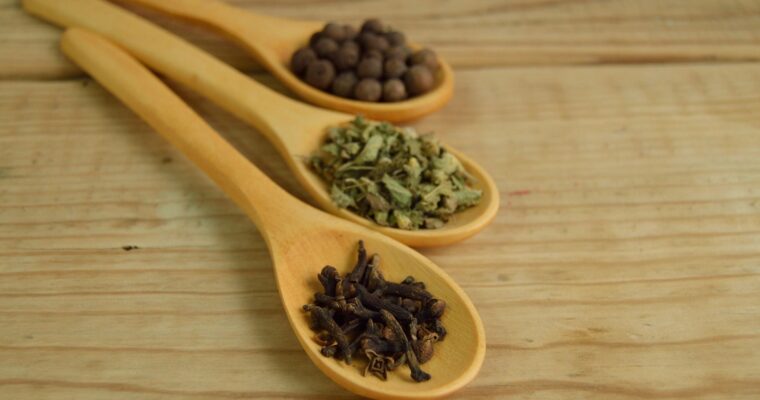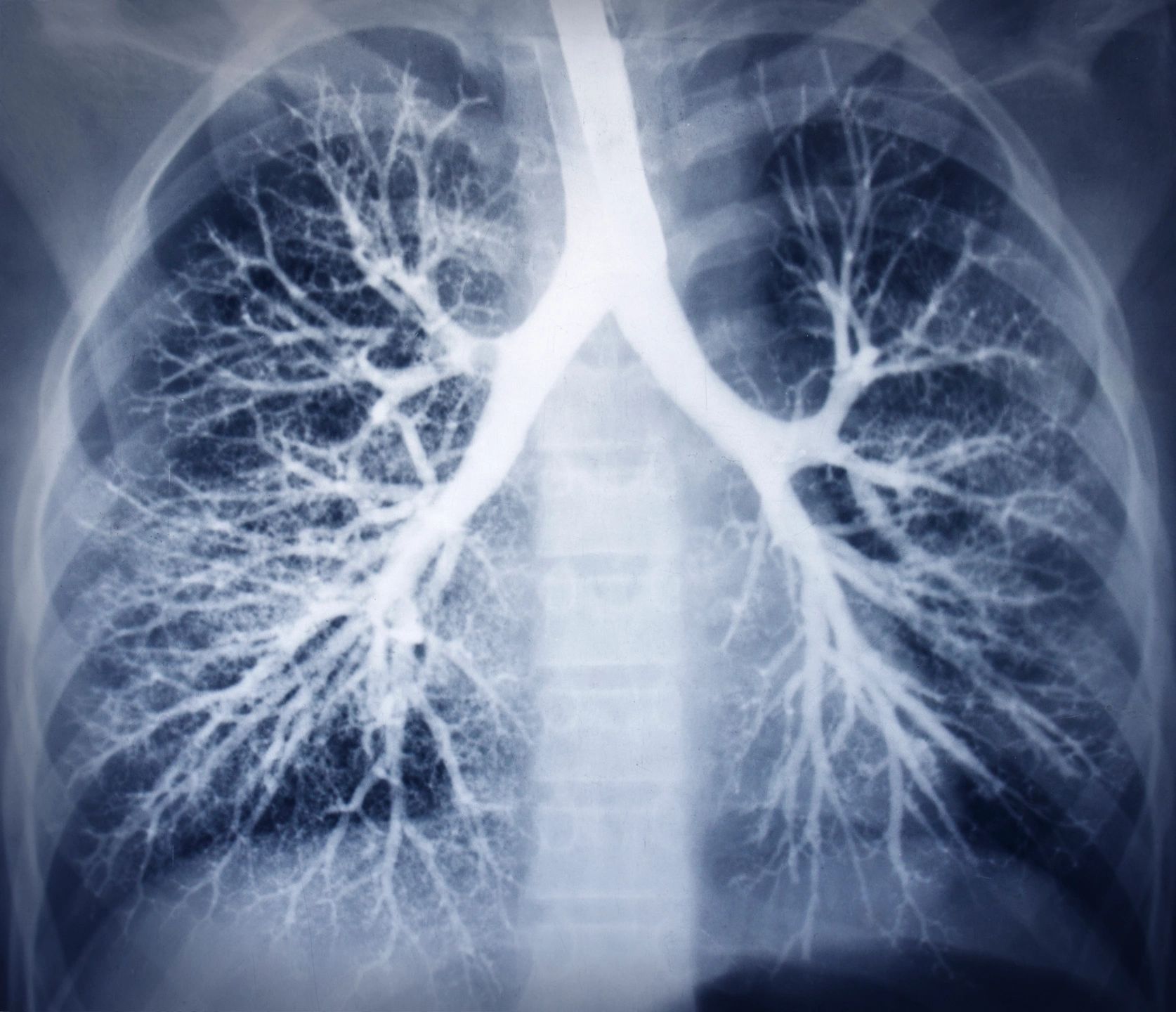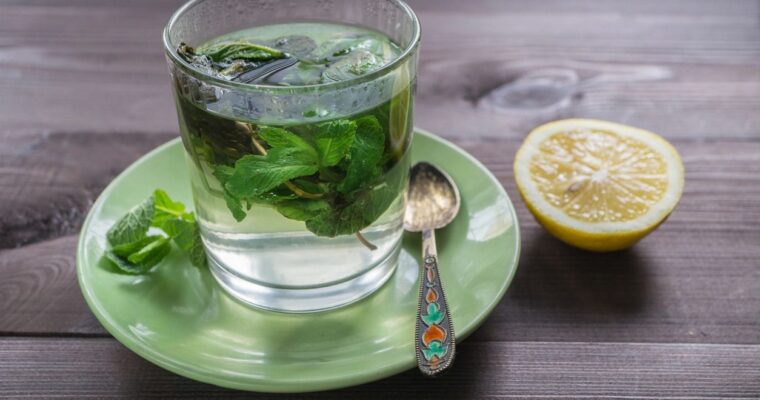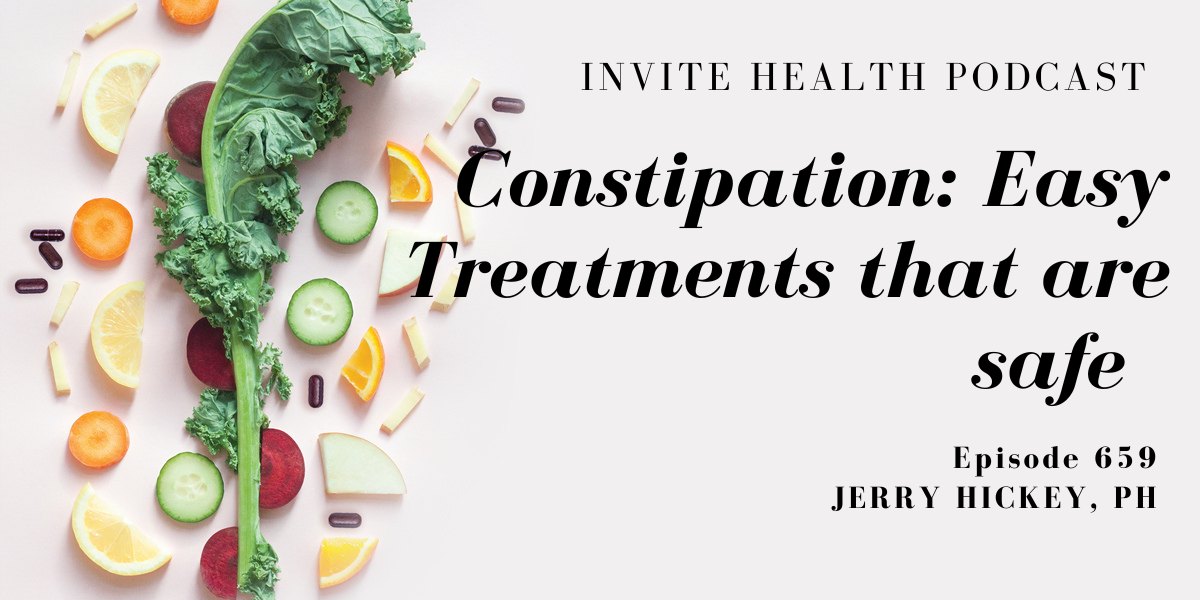Subscribe Today!
Please see below for a complete transcript of this episode.
CONSTIPATION: EASY TREATMENTS THAT ARE SAFE, INVITEⓇ HEALTH PODCAST, EPISODE 659
Hosted by Jerry Hickey, Ph.

*Intro Music*
InViteⓇ Health Podcast Intro: [00:00:04] Welcome to the InViteⓇ Health Podcast, where our degreed health care professionals are excited to offer you the most important health and wellness information you need to make informed choices about your health. You can learn more about the products discussed in each of these episodes and all that Invite Health has to offer at www.invitehealth.com/podcast. First time customers can use promo code podcast at checkout for an additional 15% off your first purchase. Let’s get started. † [00:00:34]
*Intro Music*
Jerry Hickey, Ph: [00:00:40] Chronic constipation is incredibly common. Chronic means, you know, ongoing all the time. It affects over 60% of the planet’s population. So, if you do the math, that’s over 1 billion, 300 million people. So, it’s incredibly common now. It’s more common in women and it’s more common in the elderly and the elderly for seven several reasons. One, the elderly tends to not drink enough fluids. Their sense of thirst diminishes, too. The elderly loses muscle tone. And three, the elderly might be taking a mixture of drugs. That’s called polypharmacy that might affect your ability to defecate. But it can affect anybody, and it can have some really painful, very uncomfortable, unpleasant consequences. Now, in this episode, we’re going to focus on very safe ways to relieve constipation. But here’s the thing. These ways of treating constipation should actually be part of everyone’s lifestyle to begin with. So, hi, my name is Jerry Hickey, I’m a nutritional pharmacist, licensed pharmacist. I’m also the senior scientific officer over here at Invite Health. You’ll find all of the Invite podcasts for free, wherever you listen to podcasts or just go to invitehealth.com/podcast. You can also find Invite on Facebook, Twitter and Instagram at Invite Health. Now, all of the information on today’s episode will be listed in the episode description. So, let’s discuss different ways of getting rid of constipation that actually improve your health overall. These are general things we should all be doing. So, I guess we should start off with a definition of constipation. Basically, it’s pooping. We’re going to say poop instead of defecate because it’s a shorter word and everybody knows the word poop. Basically, pooping less than three times per week. But honestly, people should be defecating or pooping daily. They should be pooping daily. Also, it could be difficulty in passing the stool. The stool is another word for poop, or it could be an incomplete evacuation, feeling like you still have to go. Now, first of all, you need to poop to detoxify, all of those chemicals and the pollutants and old used up drugs and old spent hormones, etc. You’re getting rid of the lion’s share of these in your poop. So, if you don’t poop, bacteria can work on the poop, break it down and recycle the toxins. Now, one way to help prevent that from happening, by the way, is eating cabbage type vegetables. They have glucuronic acid in cabbage type vegetables that is used by the liver, by the way, in detoxification. But it seals the toxins into the poop a little bit. So, you need to poop to get rid of toxins. There’s very, very, very weak evidence, very weak evidence that constipation increases the risk of colon cancer, which frankly confuses me, because you would think having those, the bile acids are toxic too. Bile acids are things that help you break down and digest fats, they release, released in the digestive tract, to break down fats, you can absorb them. † [00:04:07]
[00:04:08] Bile acids are toxic and irritating and the toxins in the poopers staying in contact with the lining of the intestines, and that can’t be good, that can’t be good. So even though the research is weak on increased risk of colon cancer and being chronically constipated, it makes me wonder. I mean, I remember the nurses’ health study going back, oh, decades, decades, I believe it was in the late 1980s, and they found that the nurses who are chronically constipated, which comes from shift work, shift work frequently causes chronic constipation. So, they were concerned about nurses in shift work and the nurse’s health. So that’s one of their poignant findings, was that the constipation increased their risk of having colon cancer, the nurses who were chronically constipated. So, I wonder really if the research is wrong in pointing out that there’s not an increased risk. I think that there probably would be. But let’s move on, by the way, besides, eating cabbage vegetables to help protect yourself, if you’re chronically constipated, take a probiotic, and those are two ways to treat constipation. Now, we’re not talking about constipation caused by drugs, and we’re not talking about constipation caused by diseases. Different diseases like thyroid disease can increase the risk of, and of course, Crohn’s disease and colitis can increase the risk of having constipation, so, we’re not talking about that, that’s different. Sometimes those have to be medically treated and frequently they have to be medically treated. Where we’re talking about constipation, that is mostly due to lifestyle. Now, what are the consequences of chronic constipation? Chronic meaning consistent. There are many, flatulence, now, yeah, lots of luck at a party or riding in someone’s car. So, flatulence means lots of gas. Of course, you have to release that or you’re going to get abdominal cramps. In fact, a frequent symptom or a frequent side effect of constipation is, is cramping. Cramping in the intestines. Hemorrhoids, they’re also known as piles like a lot of people call them piles. Hemorrhoids can bleed, they’re itchy, they’re comfortable, they can be painful. Fecal impaction, which is exactly what it sounds like. The poop literally converts into cement, and it causes lots of pain and discomfort. And this has to be medically treated. Bowel incontinence, that’s going to be embarrassing, but also horribly uncomfortable, bowel incontinence. So, urine incontinence, bladder incontinence is when you’re leaking urine. Bowel incontinence is just the opposite side. † [00:07:02]
ICYMI:COLLAGEN & THE BRAIN, INVITE HEALTH PODCAST, EPISODE 658>>LISTEN NOW!
[00:07:03] Anal fissures, now, that’s really painful. The skin of the anus, the end of the intestines is moist and it’s very thin. So, it can tear, it could be skinned off. And this is extremely painful. So, this can happen with constipation. So, what about drugs? Well, some of the newer drugs, they could cause dizziness, flatulence and cramps and all kinds of side effects. But the old-fashioned laxatives, some of them are quite toxic. They can make you lose too many electrolytes that can make you fatigued. But even though they work at first, generally, over time, they lose their benefits, they lose their effect. Now, some people have to be on a laxative, they take stool softeners like people with very weak hearts who have heart failure and have had heart attacks. If they’re constipated and they’re forcing, they’re pushing hard, that could trigger a heart attack, that’s not unusual. So, you’ll see a lot of times if you’re a pharmacist and you’re filling a prescription, when people come in for their heart medication or heart failure medication, etc., they’re also getting a stool softener, that’s a whole different thing. Like I said, that’s more of a medical thing. So, let’s talk about you and me. Have I ever had constipation? Yeah, when I travel, like if I go from New York to Paris for a day or two, I could be constipated. But then I generally go back to normal. And if I need a little help, I have an extra cup of coffee in the morning. You’re making your intestines a little nervous. It’ll help you go if you’re traveling. But you know that’s not the way you want to do it. So, the first thing is, and this is common in older people and sometimes in women water. Water is a stool softener. Water lubricates the stool, but it also pumps water into the fiber. Otherwise, the fibers like paste, you know. So not drinking sufficient water or sufficient fluid is a common cause of constipation. So, the first thing, drink enough fluid and it depends on how much you sweat, etc.. Obviously, if you’re in a very hot, sticky climate, you’re going to need more fluid than someone who’s in a cold, dry climate. Well, that’s not exactly true. Our bedrooms in the winter when we have to heat up here in the northeast. I mean, it’s about as dry, it’s about as arid as the Gobi Desert, so you need water then too. Yeah. But obviously, if you’re out there and it’s hot and sweaty, you need more water than a nice, crisp, cool spring day. So, you know, water depends on where you are and what you’re doing. If you exercise and sweat a lot, you’re going to need more. But you need water if you’re constipated. What’s the first thing you try is water fiber. I mean, lots of good fiber. Water and fiber should be part of your life. Mm hmm. So, this is simple, just you know, commonplace, no nonsense advice. † [00:10:08]
[00:10:10] You get fiber in fruits, vegetables, including salad, of course, and legumes, you know, like lentils and beans and peas and whole grains. Now, if you have a very slow transit time, let’s discuss. The transit time is how long it takes for the poop to move out. So, if you eat something, a good transit time would be 14 hours, 24 hours. Some people’s transit time is two days. Other people’s transit time, maybe they’re anxious and nervous and it might only be 4 hours. So, a good transit time from food to poop leaving the body would be about, you know, let’s say, 15 to 24 hours. How can you check that? Simple, eat a lot of blueberries, and when the blueberries and when the blueberries, they’ll darken the poop, that make it very dark. And when they show up, there you go. Or go to a health food store and get some of those activated charcoal capsules and take like four of them. They’re safe, they’re made from vegetables, they’re not made from meat, they’re made from vegetables, so they’re safe. You take four (4) of them, swallow with a lot of water, and when you see it coming out, the poop, that’s basically your transit time. So, what does fiber do, fiber adds to the volume of the stool and fiber helps pull water from your intestines into the stool. And not having enough fiber is commonplace. So, if you have a very slow transit time, the fiber will slow down the transit time even more. So, you really need to speak to your doctor about that or your nutritionist about that. Get in touch with that. But fiber also feature good bacteria. Fiber has these types of undigestible starches, like fructooligosaccharides, that good bacteria use for food. That’s why if you don’t eat a healthy diet, you good bacteria die off, and you get the inflammatory type of bacteria which cause all kinds of health problems over time. So, what do you eat? Fiber rich foods like broccoli and spinach and peas and whole grain rice and whole grains in general and, you know, whatever else, blueberries, whatever, whatever good food you’re looking at. Some nice salad, celery, or lettuce that feeds your good bacteria, so, that’s a good thing. † [00:12:37]
[00:12:38] So, fiber and water are your first two steps and then exercise. They’re not sure all the reasons why exercise is good for your bowel habits. One reason is that exercise reduces stress, if you’re chronically stressed, you know, stress is important. Stress keeps you out of danger, stress is needed to wake you up in the morning. There are times when you need stress, and when I say stress, I mean releasing stress hormones, the cortisol related hormones. When you’re when you are stressed, like from work or your kids or me. I have a sick dog right now, which is stressing me out a little bit, but I can handle it. You release stress hormones, and this reduces the volatility of the muscles in the digestive tract. So, this contributes to constipation. And, so, exercise reduces stress, that’s one good thing. But exercise also strengthens the abdominal muscles, and this helps improve peristalsis. So, let me explain what that is. That’s an important term, peristalsis. You have concentric rings of muscle going down your digestive tract and your intestines. And the top layer constricts and pushes food down and the next layer takes over and pushes food down and the next layer takes over. And this way, you’re digesting the food, but you’re also moving out the poop, eventually. So, when you exercise, you strengthen the abdominal muscles. This also helps improve those concentric rings of muscles in the colon to move the poop out. Now, if you want a supplement of fiber, the one with the most research behind it, is psyllium. Psyllium comes from a plant that’s related to bananas, and there’s been a lot of research on it, try to get one where they don’t mix a lot of sugar into it because a lot of pharmaceutical companies mix sugar into it. So, you might want to get it from a nutrition company, an herbal company. And you have to completely mix the psyllium with water before you drink it, because if you don’t completely stir it in, it could swell in your throat and that could be dangerous. It’ll absorb the moisture in your throat, and it’ll be danger will start to swell. But psyllium helps pick up the excess sugars and greasy fats and toxins in the colon. It helps control your blood sugar. It, psyllium like whole wheat, I know whole wheat has a terrible reputation in America. You go to Italy, everybody’s having wheat because they’re having pasta with gluten in it. But, you know, you need to make the gluten to make the pasta, right? But any event, whole wheat and psyllium are the two fibers with the most researched that lower the risk of colon cancer. So, whole wheat is not all bad. † [00:15:30]
[00:15:33] Now fish oils, if you need a stool softener, you need fish oils for your brain and your heart and your immune system anyway and your eyeballs. And believe it or not, your bones and your muscles and your liver health. So, if you need a stool softener, just take a bunch of fish oil capsules. Like if you take enteric fish oil capsules, they have an extra coating and they’ll come apart in your colon. And if you take like three of those, that’ll be a stool softener. So, if you need a stool softener, you’re a lot better off with fish oils than the stuff they’re selling, like docusate that they sell in pharmacies. And pharmacies sell fish oils, so you can get the same in-store. Now another thing that helps constipation is the mineral, magnesium. That’s good, see, I said water. I said fiber. I said exercise. People should be doing these also anyway. Should be incorporated to everybody’s lifestyle. But magnesium should be too, most people do not get sufficient magnesium from their food. You can find magnesium in green leafy vegetables and beans, and you can find it in fish. But most people don’t get sufficient magnesium. There’s a lot of data, there’s thousands and thousands of thousands and thousands, probably hundreds of thousands of studies on magnesium. Magnesium does really important things in the human body. For one thing, you need magnesium to activate melatonin at night. Melatonin is needed for memory, melatonin is needed to build bone, melatonin is needed for the immune system. Melatonin is needed for digestion. Melatonin is needed for sleep; melatonin is needed for healing the brain. You need magnesium to release melatonin at night, but in the daytime, you need magnesium for energy. Most of your energy from food comes in the form of something called ATP, adenosine triphosphate, and most of it is attached to magnesium. Otherwise, you would flare it up and use it just like lighting a match, so the magnesium evens out the use of energy. If you lack magnesium, you’re not going to have muscle strength, your nerves are going to be nervous, you’re not going to have energy. And it’s bad for your heart because your heart needs magnesium to regulate the rhythm of the heart and to regulate your blood pressure. Your blood vessels need magnesium to open and close properly. Magnesium also seals calcium into your bones. Yeah, but here’s the thing, and magnesium, does so many things, it does hundreds and hundreds of things. You need magnesium for proper brain function, but magnesium, depending on the type you use, can act as a laxative. So, you have to have magnesium. And I really recommend most people take a magnesium supplement because they’re just not getting enough in their food. If you use magnesium glycinate, it’s so rapidly and completely absorbed, it doesn’t really help constipation, magnesium glycinate, is the kind I take, I don’t need help with constipation, I’m very regular. So, magnesium is very good for constipation, if you use the citrate form, in fact, if you go into a pharmacy, you’ll see kind of this yellowish greenish bottle, called citroma. What that is, is magnesium citrate, and another form of magnesium is milk of magnesia. Right? Magnesium oxide. So, magnesium is a laxative, and it has a lot of other jobs, so, it’s not wrong to take magnesium if you need help defecating and if you don’t need help defecating, take the magnesium glycinate form. † [00:18:58]
[00:18:59] Now, probiotics. There’s a tremendous amount of research on probiotics, tons of data. Of course, they help with gassiness and bloating. They help with intestinal diseases, but they help, truly help with both diarrhea and constipation. And here are some tips on probiotics. You want more than one strain of probiotic, so you want, two, three, four, five, six strains. You don’t have to go crazy, but three, four, five, six strains is plenty. You want at least 2 billion colony forming units. Colony forming units mean they’re actually alive. So, they are guaranteeing that you would have at least 2 billion when you take it. So, like the probiotic I make has billions and billions of healthy bacteria in and I just take one a day on most days I don’t even take it every day, and my digestion is perfect. Probiotics have done a tremendous amount in turning around my life, they got rid of my allergies and I’ve got rid of all my intestinal issues that I had for most of my life. But you want the probiotics to have some prebiotics. I had a friend, Dr. Allan Pressman. He used to say, why would you buy goldfish? Here’s what he said. You wouldn’t buy goldfish without goldfish food. Why would you buy probiotics without probiotic food? So, a probiotic food would be fructooligosaccharides. That’s a typical, it’s a sugar that comes from vegetables, and it, you don’t really digest it, the bacteria digest it, and it helps the bacteria thrive. So, this is the journal Pharmaceutical Research. You know, I gota do this quickly. I’ve been spending a lot of time on this, it’s 163 patients with persistent diarrhea. Persistent meaning chronic. It’s a 40-to-42-day trial. They gave them lactobacillus plantarum, which is now called lactose plateau bacillus plantarum. They changed the name, but it’s lactobacillus plantarum. That’s the name I’m used to versus placebo. You know what we used to call a sugar pill. They collected the stool samples at the start of the study and at day 28 and at the last day of study, day 42, and here’s what they found. Bowel movements were absolutely improved, these people had more bowel movements, backing away from constipation, and the bowel movements were complete. So, the probiotics improved the population’s beneficial bacteria dramatically, which is interesting. When you gave that one strain of probiotics, not only did that increase in number, but a whole bunch of other species of healthy bacteria increased in number. Now, in this one, it’s 100 patients with chronic constipation. It’s a 12-week trial, and they gave them symbiotics. Symbiotics is when you give the good bacteria along with their food. So, it’s a probiotic is the bacteria, a prebiotic is the food when you put it together, it’s called a symbiotic. So, it’s 100 patients with constipation. It’s the journal Nutrients. When they gave them the probiotic, 65% improved, uh, reported a good improvement. Over half had a complete resolution of their constipation, it’s in the journal Nutrients, August 27, 2016. Now, also the loose stools improved, their stool consistency improved. So, it got rid of their constipation, it got rid of constipation related gassiness and pain. And their transit time improved, the stool consistency improved. Most of them, the lion’s share had an improvement in their constipation, and it was all good. Uh, do I need to read more of these? I have a bunch others. † [00:23:15]
PROBIOTICS FOR MORE THAN IMMUNITY, INVITE HEALTH PODCAST, EPISODE 608>>LISTEN NOW!
[00:23:15] Now the strains to look at, bifidobacterium animalis subspecies, lactus, lactobacillus, acidophilus, lactobacillus plantarum, lactobacillus rhamnosus, all of those help with constipation. So, if you get a probiotic with at least one of them and it’s a good probiotic, it really should help you. In any event, and, you know, let me give you a timeline really quickly, what you should expect from a good probiotic. For the first three weeks, you might be a little more gassy and you might have more bowel movements than you used to. But after about three weeks, your intestines really calmed down and your digestion improved dramatically. At about the four week point with a good probiotic, it starts to improve your immune system, so you’re less inflamed on the one hand, but at the same time you have an improvement and fighting off according to the data, cancer cells and fighting off viruses. By about two months, your allergies should start to improve. So, if you have allergies, you want to take it every day long term. But once you’ve been on a bottle or two at a probiotic, you probably could skip a couple of days at a time. You could take the probiotic every other day or every third day and save some money. It’s more convenient because you’ve already established good bacteria. Now what kills off probiotic bacteria are pollution, inhaling pollution using a lot of cleaning fluids, you’re inhaling the cleaning fluids. It’s killing off your good bacteria, diabetes, obesity, overweight belly, alcohol, a terrible diet. All of those things, and aging sadly kills off good bacteria, and of course, antibiotics kill them off immediately. Many drugs kill them off, even drugs for heart disease, etc. Kill off your good bacteria. So, what it really comes down to is most people need a probiotic supplement. Almost all people need a probiotic. If you live in a polluted city, if you live near a highway or an expressway, if you have diabetes, if you’re overweight and I don’t mean overweight muscle, I mean overweight fat. If you’re using a lot of chemicals that you can inhale. All these things indicate that you need a probiotic. If you have allergies, you probably need a probiotic. If you have diarrhea or constipation, you probably need a probiotic. If you’ve been on drugs, you probably need a probiotic, if you drink alcohol or you smoke cigarettes, you need a probiotic. So, let’s get back to constipation. Simple. You need to drink enough fluid, you need to eat enough fiber, you need to exercise. Magnesium is important for all of us to take. Fish oils could be helpful as a stool softener if needed. And probiotics, most people need a probiotic anyway. Thanks for listening to today’s episode. You can find all of the Invite episodes for free wherever you listen to podcasts or just go to invitehealth.com/podcast. You can also find Invite on Twitter, Instagram and Facebook at Invite Health. I want to thank you so much for listening. Hope to see you next time. Another episode of InViteⓇ Health Podcast. Jerry Hickey signing off. † [00:23:15]
*Exit Music*











